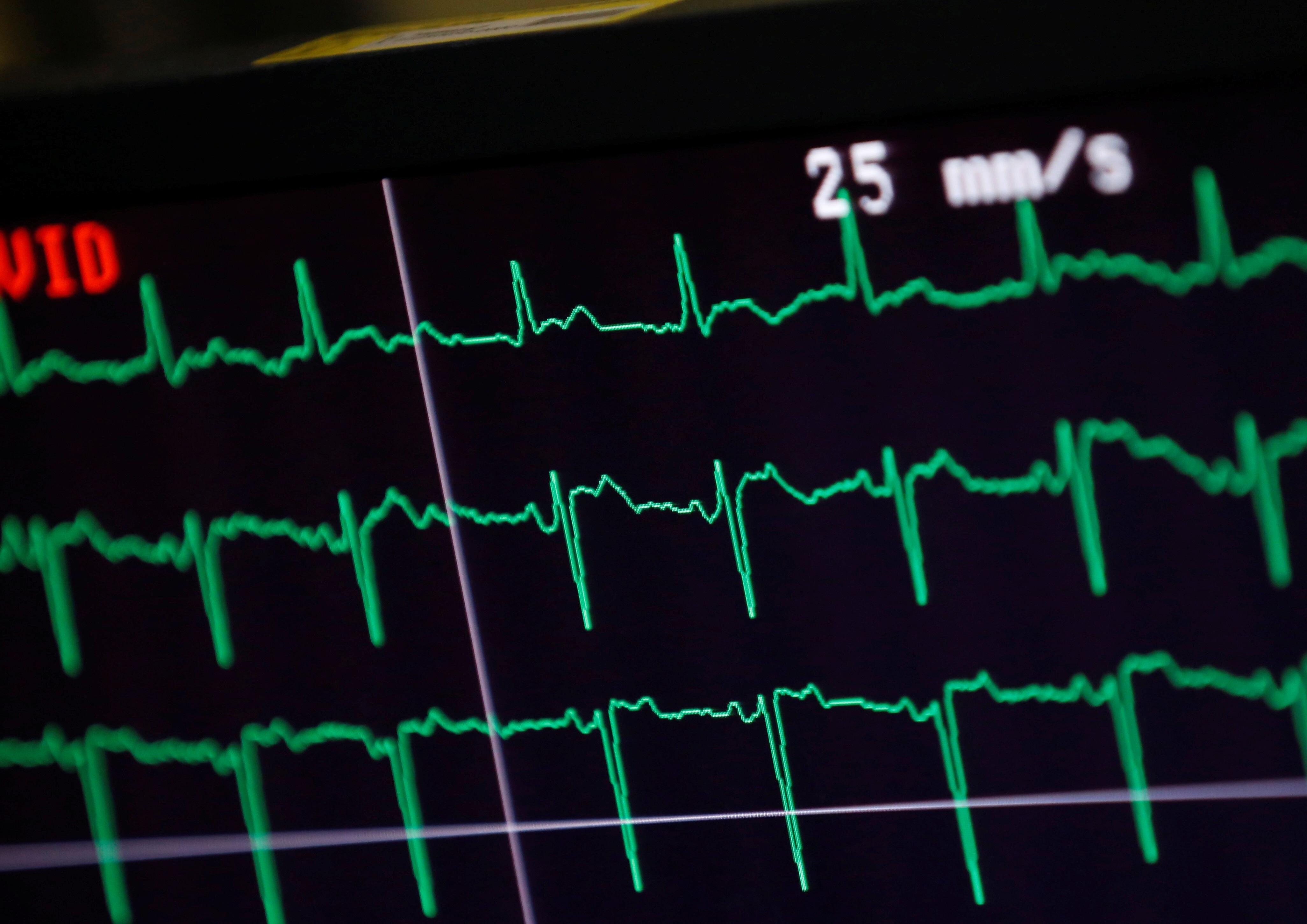COVID-19: What you need to know about the coronavirus pandemic on 9 April

Hospital beds are seen in a chapel inside the Cathedral Church of St. John the Divine for what will be a temporary field hospital constructed by the Samaritan's Purse and Mount Sinai Hospital on Manhattan's Upper West Side during the outbreak of the coronavirus disease (COVID19) in New York City, New York, U.S., April 8, 2020. Image: REUTERS/Mike Segar - RC2K0G9Z3513
- In this daily round-up, we'll bring you a selection of the latest news updates on the coronavirus pandemic, as well as tips and tools to help you stay informed and protected.
- Today's big stories include: The WHO pleads for leaders to avoid politicizing COVID-19; CEOs share what companies should do now; and how to protect your company from cybercrime.
1. How COVID-19 is impacting the globe
- There are more than 1.4 million confirmed cases of infection of the COVID-19 coronavirus worldwide as of 8 April, with more than 88,000 confirmed deaths, according to Johns Hopkins University. More than 329,000 people have reportedly recovered from the disease.
- The US reported that another 6.6 million Americans filed for unemployment last week.
- The US Federal Reserve announced initiatives that would provide $2.3 trillion in loans. These efforts include expanding corporate lending programs, allowing new classes of debt and expanding corporate-debt backstops.
- Italy's prime minister asks EU to help coronavirus-hit countries.
- UK Prime Minister Boris Johnson remains in intensive care, though his condition improves.
- New York's outbreak was sparked from cases in Europe, according to new research.
- Centers for Disease Control and Prevention (CDC) guidelines explain when essential workers can return to work after coronavirus exposure.
- Austria prepares to ease coronavirus lockdown at shops next week, and Switzerland said it would start gradually easing emergency measures at the end of April.
In an impassioned briefing today, World Health Organization Director-General Dr Tedros Adhanom Ghebreyesus turned up the volume on his regular appeals for global solidarity to fight the coronavirus pandemic, pleading for unity. He asked leaders to unite with rivals for the greater good, stressing that politicians must consider the people's safety.
For the first time he acknowledged that he has been the target of racial remarks and even death threats, but puts his focus on battling the virus and not personal attacks.
“For God’s sake," he said, noting the more than 80,000 confirmed deaths so far. "Even one person is precious." He added, "if you don't want more body bags, don't politicize this,” he said.
“We shouldn't waste time pointing fingers. We need time to unite.”
Business leaders have a responsibility to strengthen their staff and their companies, said, Brian Moynihan, CEO of Bank of America, in a digital meeting of the World Economic Forum's COVID Action Platform Wednesday.
When it comes to taking care of employees, he said, the goals should be: "keep them well, keep them employed and keep them mentally healthy."
To strengthen their companies, Moynihan encouraged businesses of all sizes to adopt the Stakeholder Principles endorsed by the World Economic Forum and businesses on 1 April. Those principles include: keeping employees safe; securing shared business continuity with suppliers and customers; ensuring fair prices for essential supplies for end consumers; offering full support to governments and society; maintaining the long-term viability of companies for shareholders; and continuing sustainability efforts.
As viruses copy themselves within an infected person, they sometimes mutate. These mutations can complicate treatments, wrote researchers from the University of Washington recently in the Conversation, and are key for researchers to study,
While many mutations are harmful to viruses, some help them thrive. Some can become drug resistant, or even help viruses spread more easily from person to person. Technological advances allow researchers to monitor mutations to catch them as they arise. Through that monitoring, and by comparing mutations that appear in different infections, they can uncover some of the dynamic processes helping viruses to evolve.

The increasing numbers of remote workers are seen by cybercriminals as particularly vulnerable targets for phishing and ransomware attacks. Global losses from cybercrime already reach into the trillions each year, and those losses could be all the more devastating for individual businesses given the economic uncertainty brought by COVID-19. To protect your company, keep your staff educated regarding what links to click and how to stay secure. Across the company, secure connections, multi-factor authentication, encrypted environments for documents, and vigilance will be key.
Don't miss any update on this topic
Create a free account and access your personalized content collection with our latest publications and analyses.
License and Republishing
World Economic Forum articles may be republished in accordance with the Creative Commons Attribution-NonCommercial-NoDerivatives 4.0 International Public License, and in accordance with our Terms of Use.
The views expressed in this article are those of the author alone and not the World Economic Forum.
Stay up to date:
COVID-19
Forum Stories newsletter
Bringing you weekly curated insights and analysis on the global issues that matter.
More on Health and Healthcare SystemsSee all
Frederik Kristensen
January 20, 2026







